23 Worst Shark Tank Pitches So Far And What makes them worst
Shark Tank is a popular TV show where people with business ideas try to get investments. Sometimes, the pitches are really bad and don’t impress the investors. These pitches have funny or terrible concepts that make the investors confused. It can be embarrassing to watch dreams fail on the show. How we select the Worst Shark Tank Pitches Ever Before we reveal the pitches that didn’t go well, let’s understand why they ended up on the “worst” list. We have noticed some common reasons that make a pitch fail. Here’s what we will be considering. Lack of Preparation Imagine stepping into the Shark Tank without a solid understanding of your market, competitors, or target audience. These entrepreneurs often find themselves in shark-infested waters without a…
Shark Tank is a popular TV show where people with business ideas try to get investments. Sometimes, the pitches are really bad and don’t impress the investors. These pitches have funny or terrible concepts that make the investors confused. It can be embarrassing to watch dreams fail on the show.
How we select the Worst Shark Tank Pitches Ever
Before we reveal the pitches that didn’t go well, let’s understand why they ended up on the “worst” list. We have noticed some common reasons that make a pitch fail. Here’s what we will be considering.
Lack of Preparation
Imagine stepping into the Shark Tank without a solid understanding of your market, competitors, or target audience. These entrepreneurs often find themselves in shark-infested waters without a paddle.
Unrealistic Valuations
One reason a pitch may be deemed one of the worst is when the entrepreneur establishes an unrealistic value for their business. This happens when they claim their company is worth much more than it actually is, without any solid proof or significant earnings to support their claim. These overly optimistic valuations often lead investors to doubt the credibility of the entrepreneur’s pitch.
Unconvincing Presentations
It’s not just about the product or service; it’s about the entrepreneur’s ability to tell their story, build a connection with the investors, and exude confidence. Lackluster presentations often sink even the most promising ideas.
Flawed Business Models
In the tough business world, having a weak foundation can quickly lead to failure. Entrepreneurs must present a solid and carefully planned business model that considers potential obstacles and shows a clear path to success. Neglecting this important aspect often attracts criticism from the sharks, who are looking for a strong and viable plan for profitability.
RELATED: Top “Shark Tank” Businesses Received Deals from All Sharks
Worst Shark Tank Pitches Ever
1. Amber Charging Station
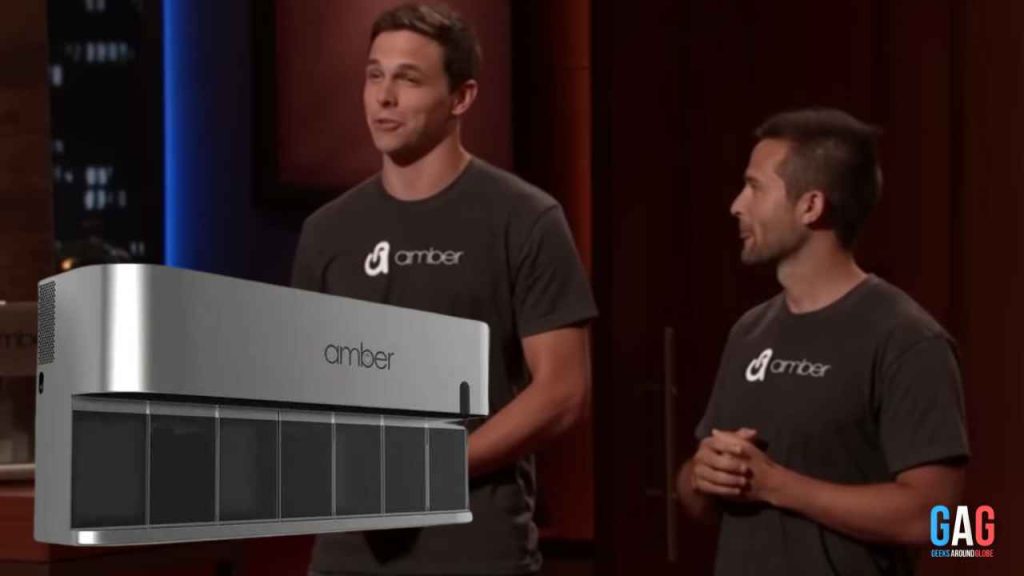
Amber Charging Station was a product created by Bill Shuey and Kyle Byrd. It was a mobile phone charging station that used fingerprint scanning to secure phones. The founders presented the product on Shark Tank in Season 6 Episode 1, but they couldn’t obtain an investment from the sharks.
The sharks criticized the product for many reasons:
- The fingerprint scanner didn’t meet the security requirements.
- The product was expensive to manufacture.
- The market already had many mobile phone charging stations, making it crowded.
As of 2023, Amber Charging Station is no longer in business. The founders have since moved on to other projects.
2. Attached Notes
Mary Ellen Simonsen pitched Attached Notes, a product that attaches to a laptop monitor to store sticky notes, on Shark Tank in season 01 episode 02. The Sharks were not impressed with the product, considered one of the worst pitches in Shark Tank history. Simonsen asked for $100,000 for a 20% stake in her company, but the Sharks felt that the product was unnecessary and overpriced. They all passed on the investment.
The attached Notes are still available online, but it is unclear how well it is selling. Simonsen has not made any public statements about the company since her Shark Tank appearance.
RELATED: WHAT IS SHARK TANK’S MOST SUCCESSFUL PRODUCT
3. Be Somebody
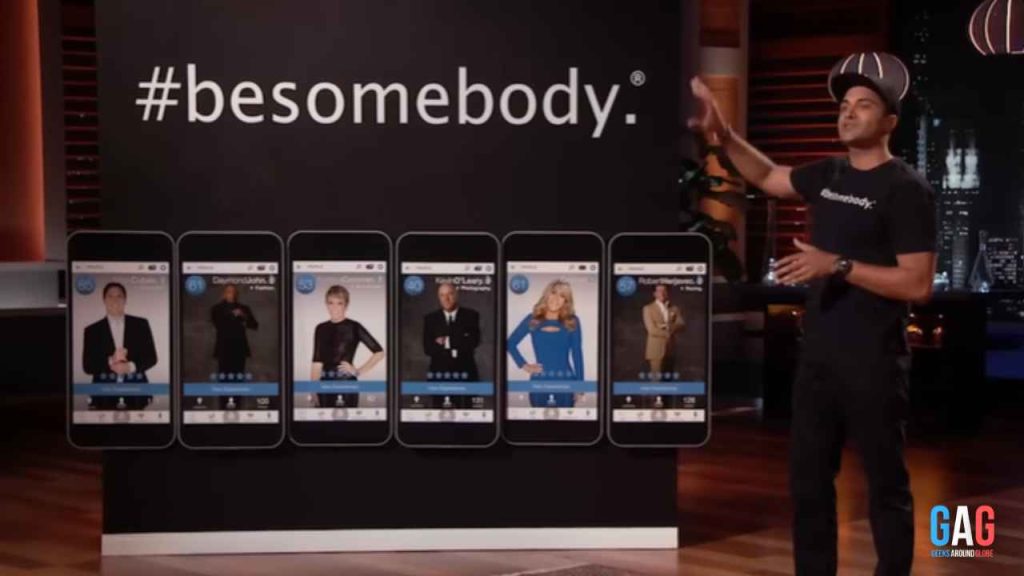
Be Somebody is an app that allows people to connect with others who share their passions. The founder, Kash Shaikh, pitched the app on Shark Tank in season 8, episode 8. He was seeking $1 million for 10% of the company. The Sharks were not impressed with the pitch, and none made an offer.
The Sharks remained unimpressed with the pitch due to several reasons: the app didn’t generate profits, the company had an unclear business plan, and Shaikh faced difficulties in responding to the Sharks’ questions about the app.
Despite the poor pitch, Be Somebody is still in business today. The company has pivoted its focus to skills training and job placement.
4. BedRyder
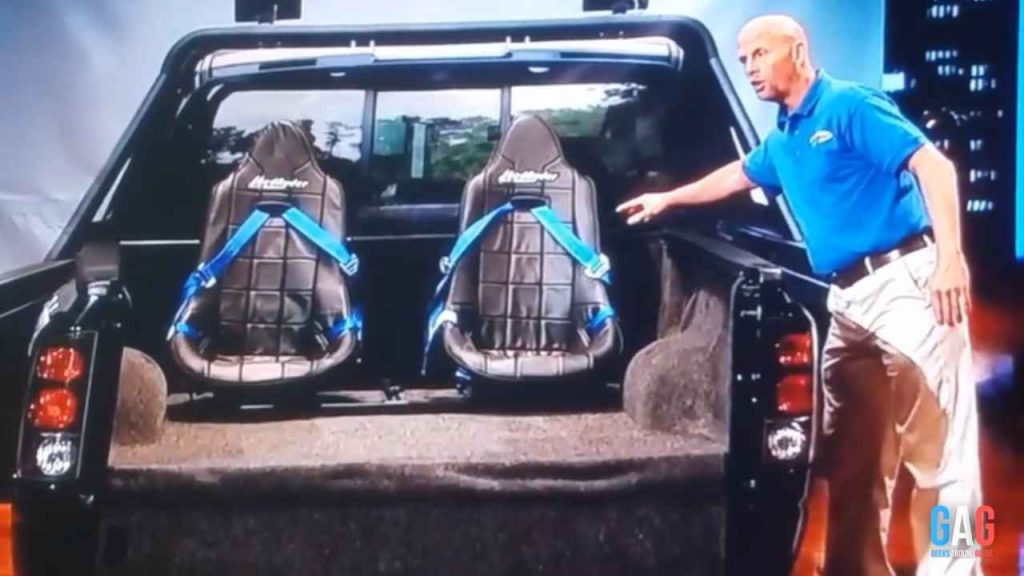
BedRyder is a product that allows you to add seats to the bed of your pickup truck. The founder, George Conway, pitched the product on Shark Tank in season 6 episode 21. He was seeking $200,000 for 15% of the company. The Sharks were not impressed with the pitch, and none made an offer.
Some of the reasons why the Sharks were not impressed with the pitch include:
- The product was not unique. There were already other products on the market that did the same thing.
- The product was expensive. The BedRyder cost $749, more than many people were willing to pay for a product like this.
- The product was not well-made. The Sharks were concerned about the safety of the product.
This company went out of business in 2019. The founder has since moved on to other projects.
5. Cougar Energy
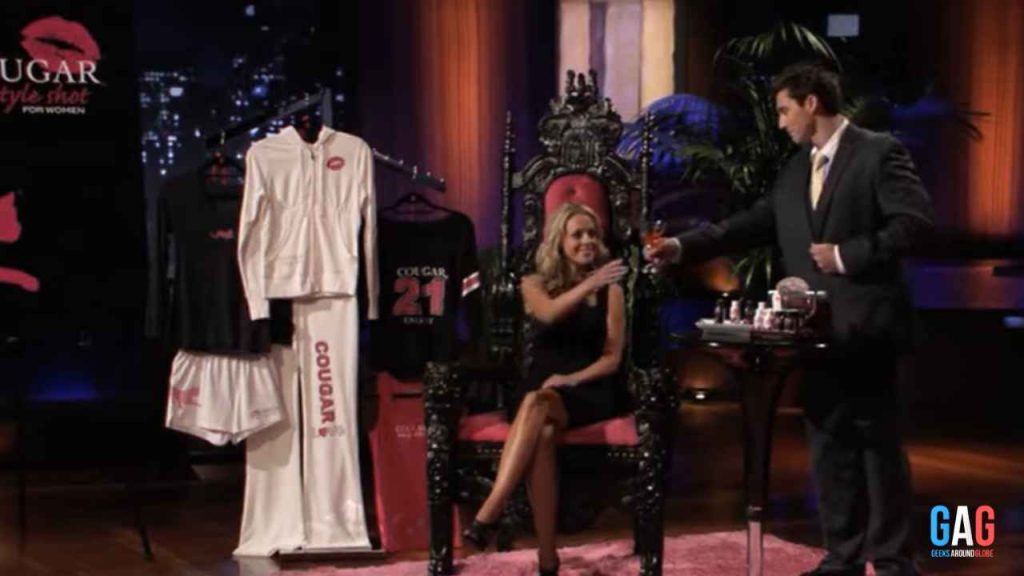
Cougar Energy is an energy drink designed specifically for women. The founder, Ryan Custer, pitched the product on Shark Tank in season 3, episode 12. He was seeking $150,000 for 30% of the company. The Sharks remained unimpressed with the pitch, and none of them extended an offer.
Some of the reasons why the Sharks were not impressed with the pitch include:
- The name of the product was offensive to some people.
- The product was not unique. Other energy drinks targeting women were already present in the market.
- The product was not profitable. Custer had only sold $10,000 worth of products in the first year.
Despite the poor pitch, Cougar Energy is still in business today. The company has rebranded itself as “Cougar Energy Shot” and is now focused on selling energy shots to women.
6. Elephant Chat
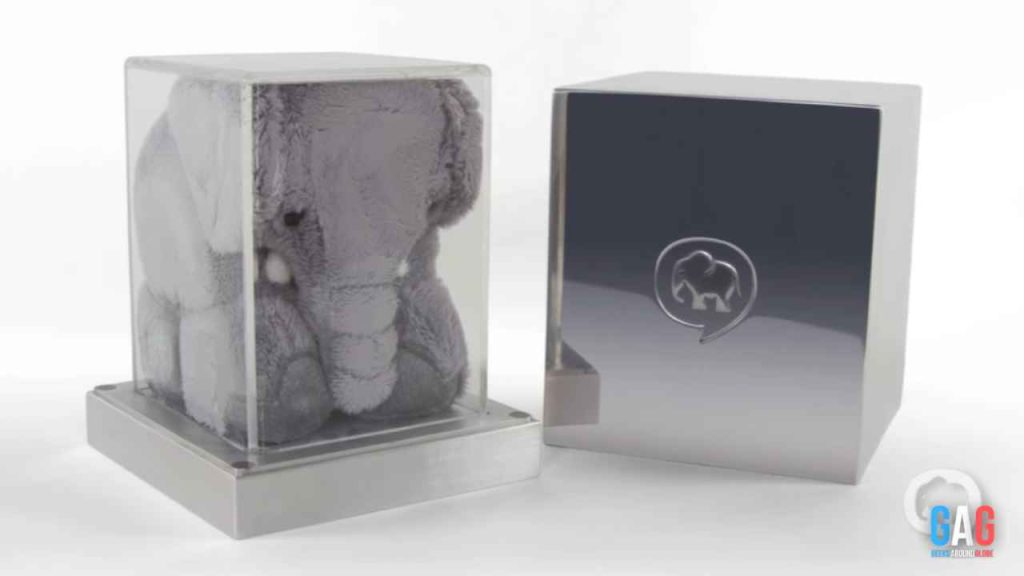
Elephant Chat was a product that appeared on Shark Tank in season 5 episode 09. The founders, Jason and Amanda Adams, pitched their product. They ask for $50K for 20% equity of their company which is a stuffed elephant in a plastic cube. The idea is that when you want to have a difficult conversation with your partner, you put the elephant out in the open as a signal that you want to talk.
The Sharks were not impressed with the product, and they all passed on the investment. The Elephant Chat product is no longer available for purchase. The Adams divorced in 2015, and the company went out of business.
Here are some reasons why the Elephant Chat pitch was considered to be one of the worst in Shark Tank history:
- The product was too expensive. The elephant cost $60, which is a lot of money for a stuffed animal.
- The product was not unique. There are many other products on the market that can help couples have difficult conversations.
- The Adams did not have a clear business plan. They were not able to articulate how they would make money from the product.
Overall, the Elephant Chat pitch was a failure. The product was not well-received by the Sharks, and it is no longer available for purchase.
7. Ecomower

Ecomower was a human-powered push mower that was featured in Shark Tank Season 02 episode 7. The founder, Andy Humphrey, pitched his product to the Sharks, seeking $90,000 for 20% of his company. Humphrey claimed that Ecomower was an eco-friendly alternative to gas-powered lawnmowers and that it was also safer and easier to use. Ecomower is no longer in business. Humphrey currently operates The Sprinkler Supply Store.
Here are some reasons why the Ecomower pitch was considered to be one of the worst in Shark Tank history:
- Andy did not have a clear understanding of his target market.
- His financials were not in order.
- Humphrey’s presentation was disorganized and confusing.
Overall, the Ecomower pitch was a failure. The product was not well-received by the Sharks, and it is no longer available for purchase.
8. Gato Cafe
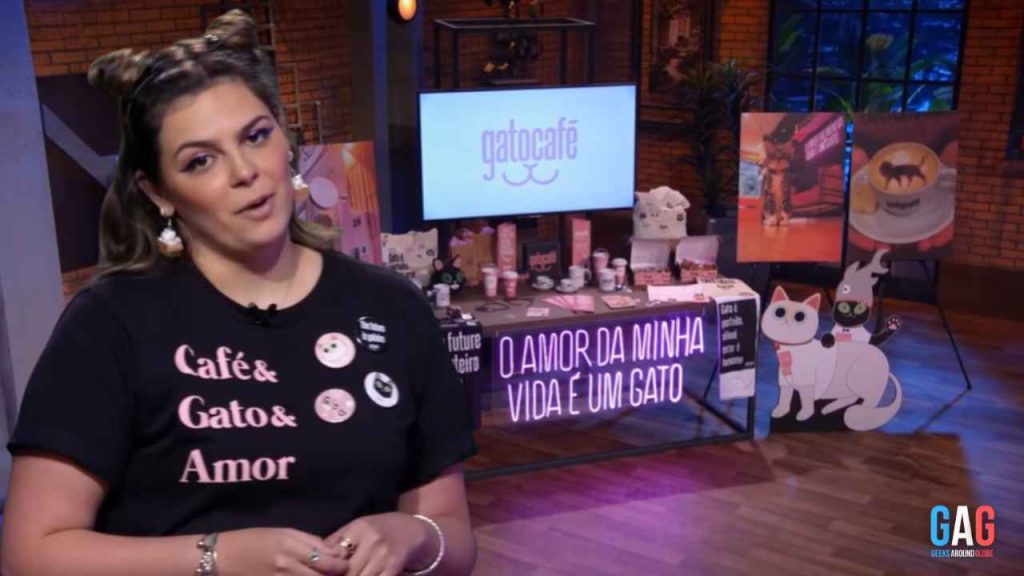
Gato Cafe was a cat café featured in Shark Tank season 6 episode 23. The founder, Adriana Montano, asked 100,000 for 20% of the business. It was a coffee shop with cats. The Sharks were not impressed with the pitch, and no one invested. Gato Cafe is no longer in business.
Here are some reasons why the Gato Café pitch was considered to be one of the worst in Shark Tank history:
- Montano did not have a clear understanding of her target market.
- She did not have any sales or revenue, and she was unable to provide a clear path to profitability.
- Montano’s presentation was disorganized and confusing.
Overall, the Gato Cafe pitch was a failure. The business was not well-received by the Sharks, and it is no longer in business.
9. Haven Lock

Haven Lock is a door lock that was invented by Alex Bertelli and Clay Banks. It was featured in Shark Tank in season 10 episode 18. The product is a wedge-based barrier that sits at the bottom of a door and lifts up when activated, making the door 10 times stronger against break-ins. The sharks were not impressed with the pitch, and Haven Lock did not receive any investment.
However, the company is still in business and is selling the product online. Here are some reasons why the pitch was considered to be a failure:
- The founders were not able to clearly explain how the product worked.
- They did not have a strong sales pitch.
- They were not able to answer the sharks’ questions.
Despite the failure to get an investment in Shark Tank, Haven Lock is still in business and is selling the product online. The company has also partnered with pest control company Terminix to offer the locks to their customers.
10. His & Her Bar
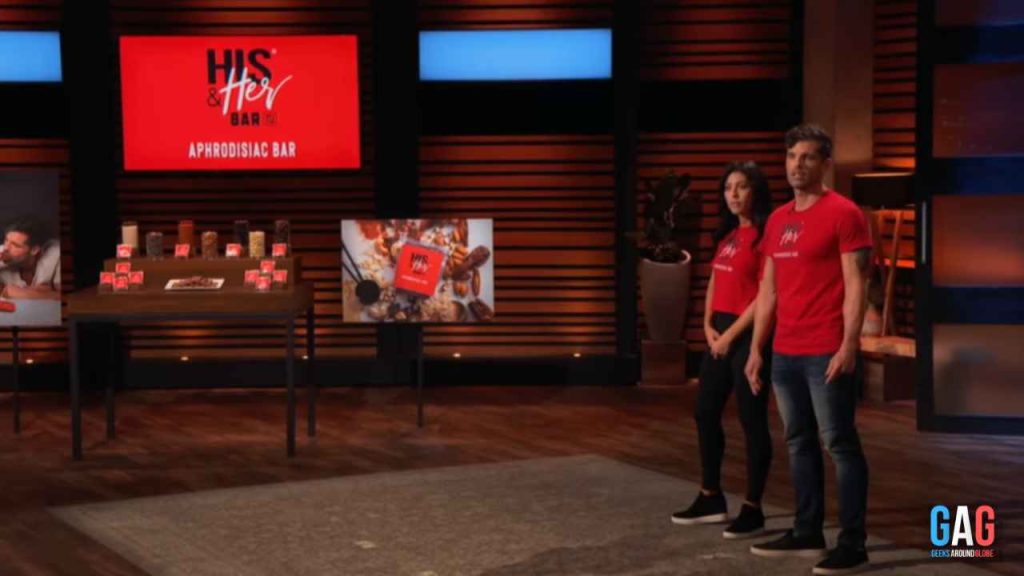
His & Her Bar is a nutritional snack that enhances sexual desire while providing a healthy snack alternative. It was invented by Jennifer and Michael Gallagher and was featured in Shark Tank season 12 episode 10. They asked $50,000 for 10% of their business. The product has seven aphrodisiac superfoods, including maca root, almonds, dates, cashews, chocolate, vanilla, and a pinch of cayenne peppers.
The sharks were not impressed with the pitch, and His & Her Bar did not receive any investment. As of 2023, the company is not active. By February 2022, they shared on their Instagram that they had closed down their company and were pursuing a different path in business.
11. Ionic Ear
Darrin Johnson created Ionic Ear, a Bluetooth device that is surgically implanted and was showcased on Shark Tank’s first episode. The invention aims to fix the issue of Bluetooth devices falling out of the ear. Unfortunately, the Sharks were not impressed with the pitch, and Ionic Ear did not secure any investments. The company is no longer in business.
Here are some reasons why the pitch was considered to be a failure:
- The product was considered to be too invasive.
- The product was not FDA-approved.
- The product was not clear on how it would be marketed.
Despite the failure to get an investment in Shark Tank, Ionic Ear is still a concept that could be developed in the future.
12. Kymera
Kymera, an electric bodyboard created by Jason Woods, gained attention on Shark Tank in season 5 episode 01. While the sharks were unimpressed and didn’t invest, Kymera persevered. It now thrives as an online business and collaborates with retailers like Amazon and Dick’s Sporting Goods.
Reasons the pitch fell short:
- Cost: The product was deemed expensive, dissuading potential investors.
- Marketing strategy: The pitch lacked clarity on how Kymera would be marketed effectively.
- Differentiation: It wasn’t apparent how Kymera stood out from other electric bodyboards.
However, It is very rare for an entrepreneur to go back on Shark Tank after the sharks rejected their product before. But Jason hopes this time will be better than the first time. In Shark Tank season 10, episode 21, he returned, and he got a deal from Robert, seeking $500,000 for 10% equity.
13. Licki Brush
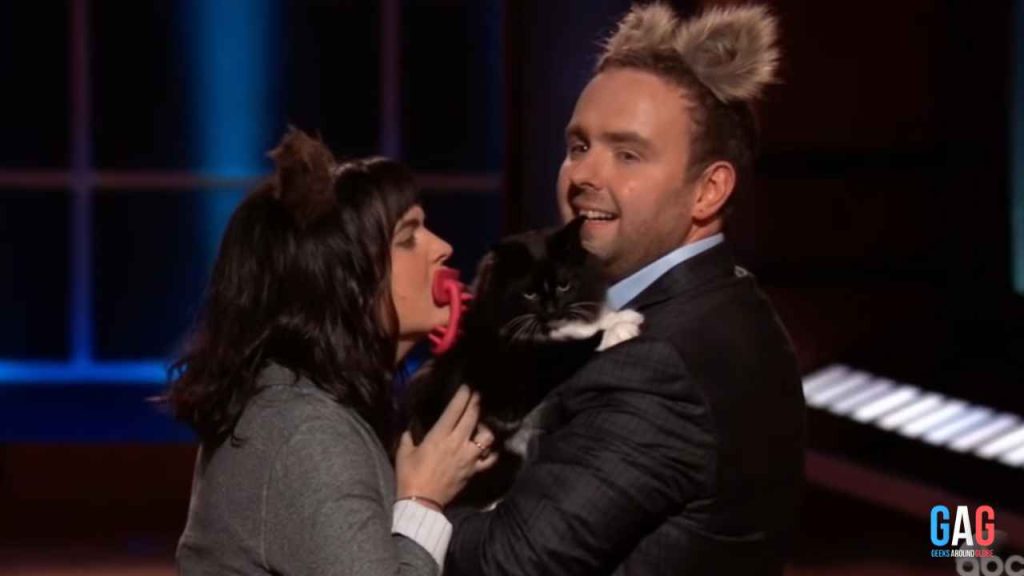
Licki Brush is a tongue-shaped brush for cat owners. Jason and Tara O’Mara invented it and it was showcased on Shark Tank in season 8 episode 13. The product is meant to assist cats in grooming themselves and decreasing hairballs. The sharks were not impressed with the pitch, and Licki Brush did not secure any investments. However, the company is still in business and is selling the product online.
Here are some reasons why the pitch was considered to be a failure:
- The product was considered to be too weird.
- The product was not clear on how it would be marketed.
- The product was not clear on how it would be differentiated from other cat grooming products.
Despite the failure to get an investment in Shark Tank, Licki Brush is still in business and is selling the product online. The company has also partnered with several retailers, including Chewy and PetSmart. Licki Brush is a cool product, and it’s great that the company is still in business. However, it’s clear that the pitch on Shark Tank was not a success.
14. No Fly Cone
No Fly Cone is a fly trap that was invented by Bruce Gaither and was featured in Shark Tank in season 4 episode 8. The product is designed to be a more humane and effective way to catch flies. The sharks were not impressed with the pitch, and No Fly Cone did not receive any investment. No Fly Cone is still not in business in 2018.
Despite the failure to get an investment in Shark Tank, No Fly Cone is still a concept that could be developed in the future.
15. RoloDoc

RoloDoc is a social networking platform for the medical community. It was invented by Richard and Albert Amini and was featured in Shark Tank in season 5 episode 04. The product is designed to help doctors and patients communicate more effectively. The sharks were not impressed with the pitch, and RoloDoc did not receive any investment. The company is no longer in business. Despite the failure to get an investment in Shark Tank, RoloDoc is still a concept that could be developed in the future.
16. Sullivan Generator
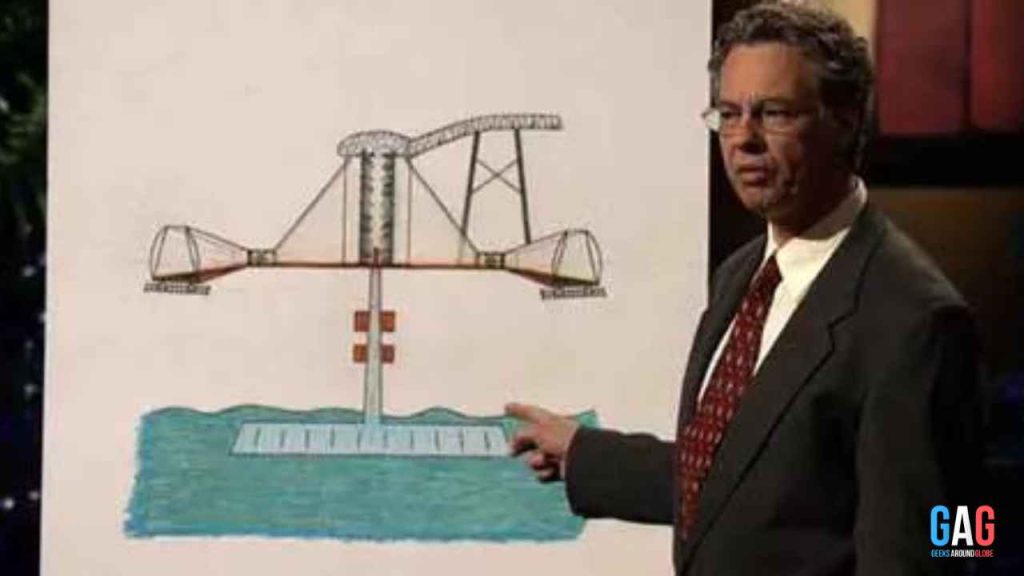
Sullivan Generator is a device that claims to generate electricity from the spin of the Earth. It was invented by Mark Sullivan and was featured in Shark Tank in season 3 episode 11. The sharks were not impressed with the pitch, and Sullivan Generator did not receive any investment. As of December, 2022, his website is still functioning.
Here are some reasons why the pitch was considered to be a failure:
- The product was considered to be too theoretical.
- The product was not clear on how it would be manufactured.
17. Tail Lightz
Tail Lightz are light-up stickers that you can attach to your jeans pockets. Kyle Rainey invented them and appeared on Shark Tank in season 3, episode 3. He asked for $50,000 for 50% of his company, but the Sharks all passed. They thought the product was too niche and that the market was too small. Tail Lightz is no longer in business, but Rainey continues to work as an inventor.
Here are some reasons why Tail Lightz was considered to be one of the worst pitches in Shark Tank history:
- The product was too niche. There was a limited market for light-up stickers that you could attach to your jeans pockets.
- The company had no sales. Rainey had only sold a few hundred units of Tail Lightz before he appeared on Shark Tank.
- The founder was unprepared. Rainey didn’t do his research on the Sharks, and he didn’t have a clear plan for how he would use their investment.
Despite the negative feedback from the Sharks, Rainey is still an inventor, and he continues to work on new products.
18. Technology Enabled Clothing
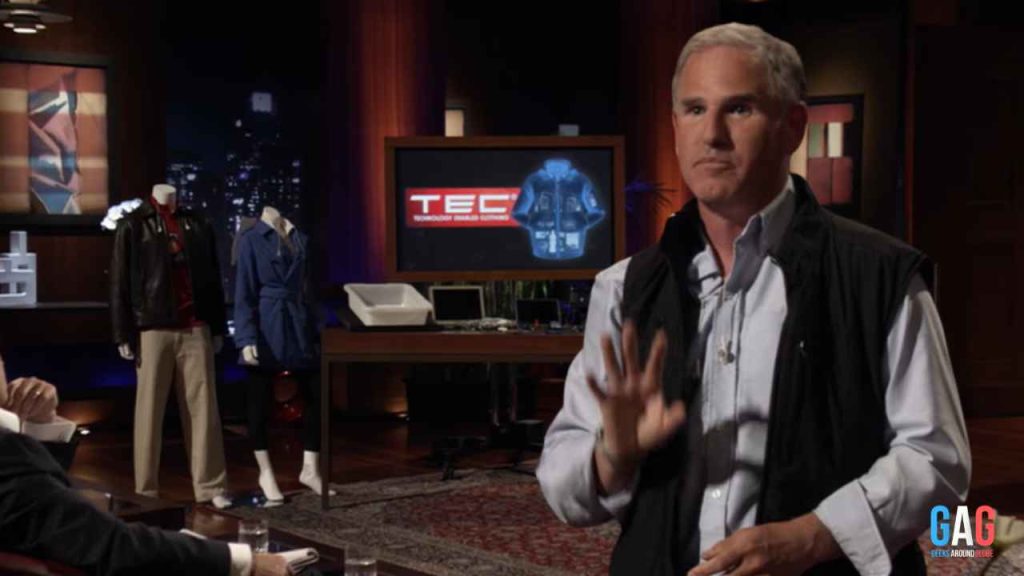
In season 3 episode 11 of Shark Tank, Scott Jordan pitched Technology Enabled Clothing, a line of clothing with built-in pockets and wiring systems for storing and charging electronic devices. The Sharks were not impressed with Jordan’s pitch, which they found to be too long, complicated, and focused on the technology rather than the customer. Jordan ultimately left the Tank without a deal.
Despite the Sharks’ lack of interest, Technology Enabled Clothing is still in business. The company sells its products through its website and a network of retailers.
19. Throx
In season 01 episode 08 of Shark Tank, Edwin Heaven pitched Throx, a line of socks that come in sets of three. Heaven’s pitch was met with mixed reactions from the Sharks. Some, like Mark Cuban, thought the product was a novelty that would never catch on. The Sharks were unimpressed by his presentation, and they all declined his deal.
Here are some of the reasons why the Sharks didn’t invest in Throx:
- They thought the product was too niche.
- They didn’t think there was a big enough market for it.
- They were concerned about the competition.
- They didn’t think Edwin was the right person to run the company.
Despite not getting a deal on Shark Tank, Throx has continued to operate. The company sells sets of three socks specifically targeted towards children and teenagers. Throx has been successful in its niche market, and the company still exists.
20. The Skinny Mirror
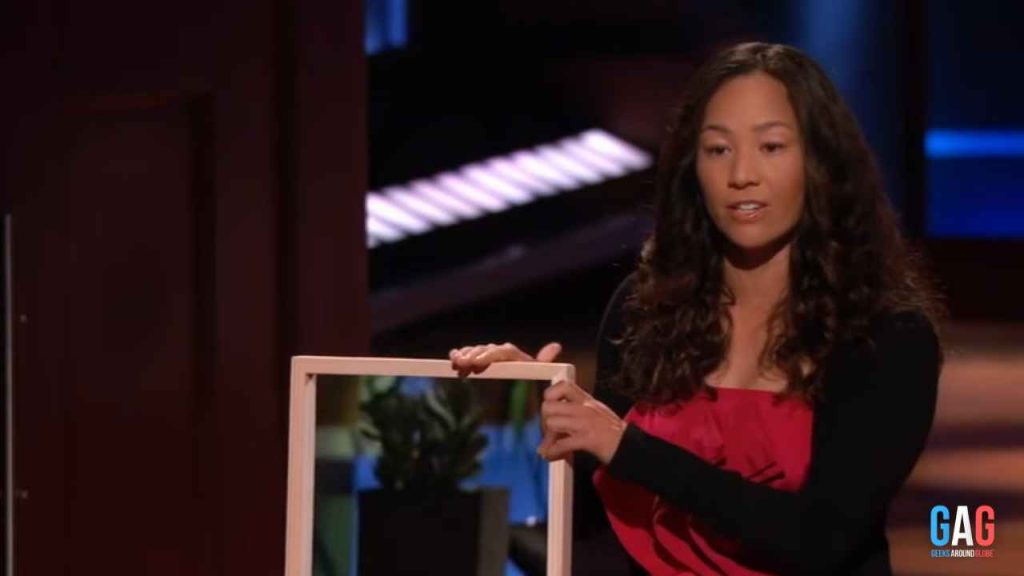
The Skinny Mirror is a mirror that is designed to make people look slimmer. It was created by Belinda Jasmine, who pitched her company on Shark Tank in season 7, episode 5. The Sharks were not impressed with the product, and they felt that it was misleading. They also felt that the founder was not prepared for the pitch. The company is not clear how well it is doing.
Even though The Skinny Mirror didn’t get an investment on Shark Tank, it still has the potential for future development as a concept.
21. Track Days
James LaVitola and Brian Pitt presented their movie concept, Track Days, focused on motorcycle racing, on Shark Tank. However, the sharks remained unimpressed due to the absence of a script, actors, and financing.
The founders of Track Days made a number of mistakes in their pitch. The founders did not have a clear plan for how they were going to make the movie. The sharks lacked enthusiasm and declined to invest in the company.
22. Tycoon Real Estate
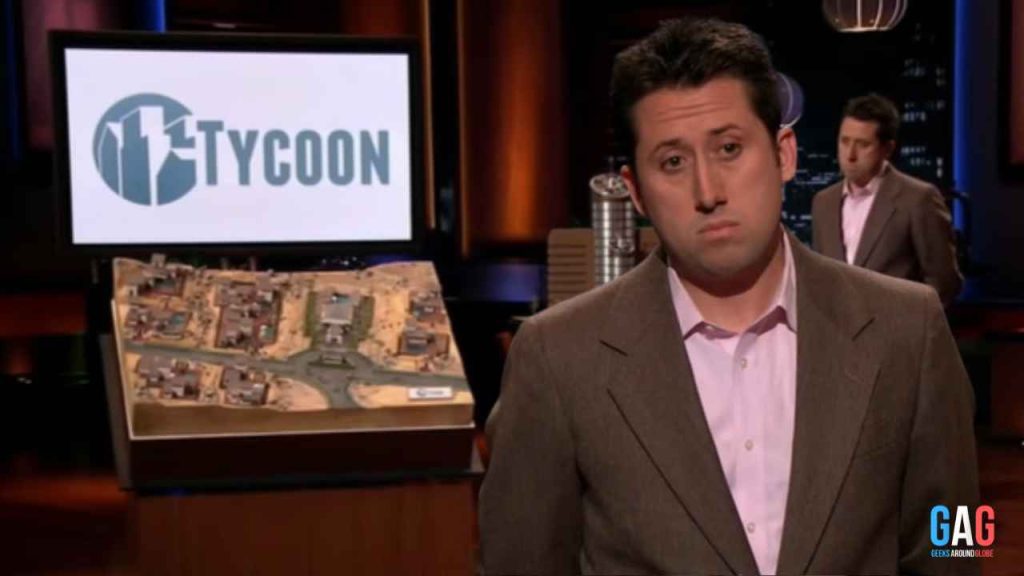
The sharks remained unimpressed by the pitch. They felt that the company was too risky and that McDaniel did not have enough experience in the real estate industry. They all passed on the investment.
American Homeowner Preservation acquired Tycoon Real Estate in November 2015. The company is now defunct.
Here are some reasons why the Tycoon Real Estate pitch was considered to be one of the worst in Shark Tank history:
- McDaniel did not have a clear understanding of the real estate market.
- He was unable to answer the sharks’ questions about the risks involved in real estate crowdfunding.
- His business model was not scalable.
Overall, the Tycoon Real Estate pitch was a disaster.
23. Unpack
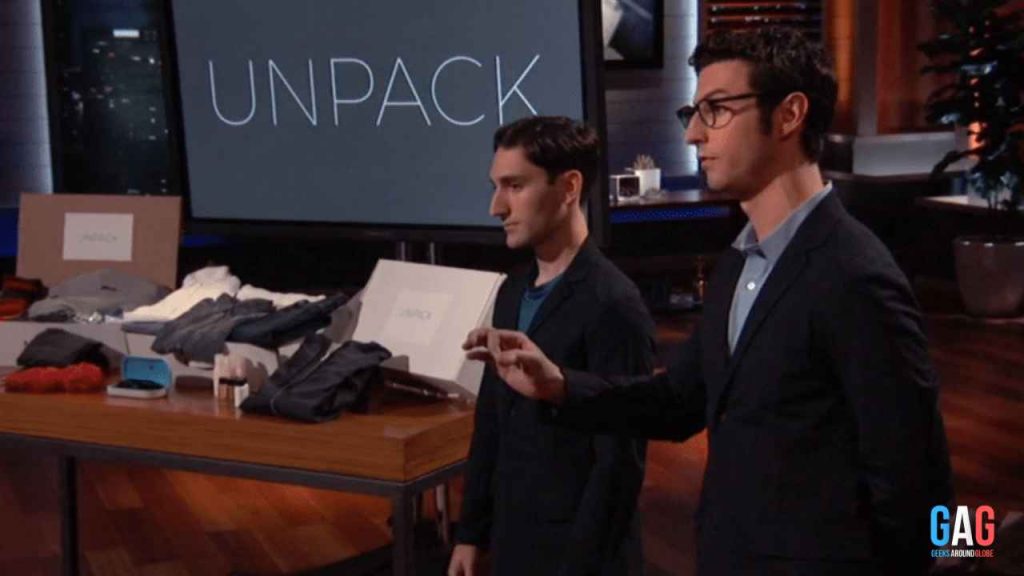
Unpack is a company that delivers a suitcase full of clothes to your hotel or Airbnb. Aaron Liskov and Andrew Zahornacky established the service, which appeared on Shark Tank in season 8 episode 05. However, the Sharks were not impressed with the pitch and decided against investing in the company. The business website is still working, but people cannot sign up anymore to borrow luggage. There is a phone number on the website, but it is unclear if it is still in use or not.
Here are some reasons why the Shark Tank judges thought Unpack was a bad pitch:
- The company was asking for $250,000 in exchange for 10% of the business.
- The company had no revenue.
- The company’s business model was not scalable.
RELATED: WHAT IS SHARK TANK’S MOST SUCCESSFUL PRODUCT?
Conclusion
In the wild world of Shark Tank, not every pitch swims to success. The show has seen its fair share of cringe-worthy and downright disastrous pitches that left the sharks wide-eyed and speechless. From entrepreneurs who weren’t quite ready to unrealistic valuations and flawed business models, these pitches teach us some valuable lessons. They remind us how crucial it is to be well-prepared, have realistic expectations, and present a solid business plan.
Remember, failure can be a stepping stone on the journey to future success in the challenging realm of business.
Also, read the article, 9 Rejected Shark Tank Pitches that made millions.






